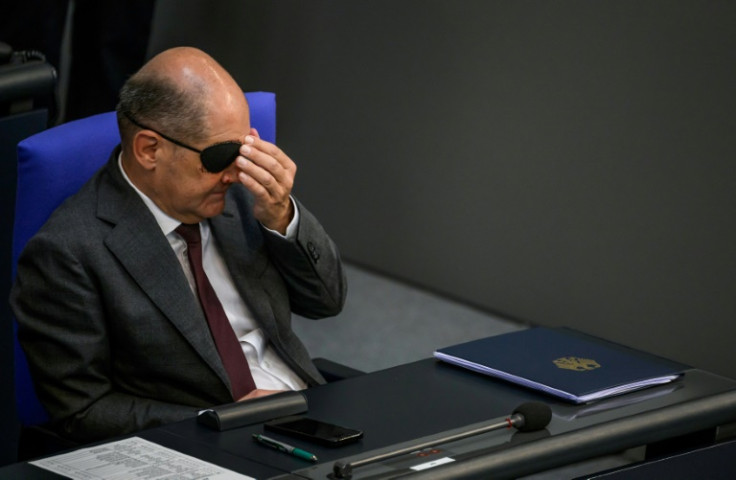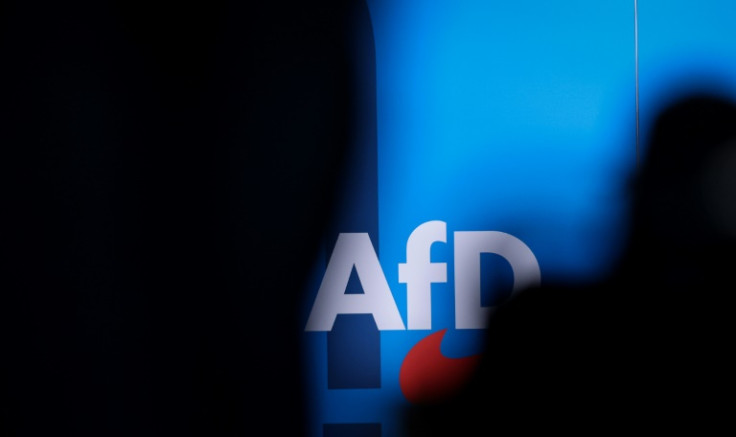Scholz's Coalition To Take Hit At German State Polls

German Chancellor Olaf Scholz's troubled coalition is expected to take a hit at two major state polls that come halfway through its term, while the far-right is set for new gains.
Almost 14 million voters are eligible to cast ballots on Sunday in southern Bavaria, the country's biggest state, and western Hesse, with a surge in immigration and economic woes among key topics.
Scholz took power about two years ago leading a three-party coalition, but within months his government had to contend with the fallout triggered by Russia's invasion of Ukraine.
Berlin rapidly had to tear up a long-held pacifist stance to back Kyiv, while the ensuing energy crisis hit Europe's top economy particularly hard, sending it into a recession.
Adding to its problems, Scholz's coalition -- comprising his centre-left SPD, the Greens, and the liberal FDP -- has been consumed by bitter infighting on issues ranging from climate laws to spending cuts.
Politics at the national level and disagreement within the coalition are dominating the polls, Ursula Muench, director of the Academy for Political Education in Tutzing, told AFP.
Serious disputes over issues like a new law to slash emissions from household heating are seen as "examples that this government is just not capable of taking action," she said.
"That it is so slow, and does not tackle the important issues."
Arndt Leininger, a political expert from the Chemnitz University of Technology said, "the parties that form the federal government are in a bad starting position here.
"In both states, all three parties are currently below their results in the last regional elections."
Not helping the cause of the SPD and its coalition partners, both states are conservative strongholds, with Hesse ruled for 24 years by the main opposition CDU, and Bavaria since 1957 by the CSU, headed by Markus Soeder.
Meanwhile the far-right Alternative for Germany (AfD) is forecast to make gains in the two states after a recent surge in poll ratings at the national level, and a string of local election triumphs.
While they are not expected to enter government in either state -- their strongholds are in eastern Germany -- further progress would ring alarm bells anew about the party's growing popularity.
As well as discontent at the coalition's policies, the AfD has been boosted by the issue of immigration, which has emerged as a central theme at the polls.
As elsewhere in Europe, Germany has been facing a surge of new arrivals this year that has revived memories of a major influx in 2015.
In Bavaria, the conservative Christian Social Union (CSU), the sister party of the CDU, is expected to extend its hold on power, with state premier Soeder -- seen as a potential chancellor candidate -- to retain his post.
Ahead of the vote, the state's ruling coalition was rocked by a scandal when Soeder's deputy, Hubert Aiwanger, admitted possessing Nazi pamphlets, found in his schoolbag as a teenager in the late 1980s.
Aiwanger, leader of the populist Free Voters, the junior coalition partner, managed to hang on to his job, and his party actually won more support after he claimed he was victim of a "witch hunt".
In contrast, the parties from Scholz's coalition are expected to lose support compared to the last elections in 2018, and the FDP may not even meet the threshold to get into the state parliament.
The SPD has sought to make gains in Hesse by fielding a heavyweight, Interior Minister Nancy Faeser, but the party is also forecast to lose support while the CDU is on course to remain in power.
The CDU -- the main opposition at the national level -- will thus retain its state premier, Boris Rhein.
A poor result in the polls could cause more problems for the coalition in Berlin and could make the FDP, which has sometimes sought to block proposals by coalition partners, even harder to work with, analysts warn.
"(The party) could take an even sharper tone, which could make substantive cooperation more difficult," said Leininger.

© Copyright AFP 2024. All rights reserved.





















